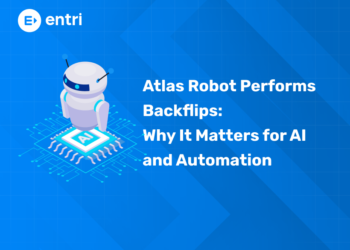Table of Contents
Java is not to be confused with JavaScript, it has been built as a Write once, run anywhere language – which in simple technical terms means that it can be run on pretty much any device that there is.
Why is practice so important?
Can you imagine a swimmer student who learns how to swim from books and internet video, but never tries swimming pool? Or a singer who reads theory again and again way before trying their voice? Well, programming is the same! Learning theory is useful, but solving Java programming exercises for beginners is a must. The short answer is very easy: the essence of programming is practice.
So, how to practice?
1: What is the default value of a boolean in Java?
The topic question means no less than ‘how to learn Java.’ The short answer is: you learn it the way that is not boring for you, and it should contain enough practical tasks. Well, very briefly:
- Have a plan for your learning. It could be a schedule of some courses or table of contents from a good Java book for a beginner.
- Connect your schedule to the time. For example, learn Java every day (or at least every other day) for 1,2,3 hours… The speed of your learning depends on your previous programming experience, education, and the time you ready to spend.
- Solve many java beginner exercises every day, read some lectures for them.
- Check the correctness of your code.
- Don’t hesitate to ask some questions to people who know more than you.
Learn Coding in your Language! Enroll Here!
Explore Free Coding Courses !
Take your first step toward mastering in-demand skills, acing interviews, and securing top-tier jobs with Entri's free coding courses.
👉 Explore Free Courses NowWhat Java exercises should you solve?
Here we list the main topics of Java Core.
Java Syntax
Java beginners exercises. From the very first word in Java that helps you to write your first “Hello World” program to loops and conditional operators. Here you learn primitive types, how to work with them, what is class. Everything on a fundamental level right for beginners. Topics:
- Write your very first Java programs. Keyboard output
- Variables, methods, and classes
- DataTypes: int, double, boolean, String
- Keyboard input
- Conditions and loops
- Introduction to classes. Constructors and objects
Java Collections and Data Structures
This topic is very interesting for beginners. At first, mastering some of the data structures causes difficulties for beginners, but later, they give you the flexibility to choose the right structure for your problem. So, knowing them well is a kind of superpower.
- Arrays
- ArrayList, LinkedList
- HashSet, HashMap
- Iterable
- Collection Interface
- List Interface and implementations
- Map Hierarchy
- Set Interface and implementations
- Queue
- Trees, Red-Black trees
- Iterators
Learn to code from industry experts! Enroll here
Exceptions
An exception (or exceptional event) is an abnormal situation that arises during the execution of a program. In Java, Exception is a class you may work with. This mechanism greatly simplifies bug catching in programs. Topics:
- Stack Trace
- Exceptions types
- Try Catch Finally construction
- Runtime Exceptions
- IOExceptions
- Multi-Catch
What is Java Programming Language?
We interact with Java on a daily basis, whether we acknowledge the fact or not, and on many occasions – a website might tell us that we need to install Java in order to browse it, this goes a lot for websites that are flash dependent and have some kind of flash components integrated within the core system.
Java is also one of those programs that you usually download straight away, after a purchase of a new computer. Its history with security issues is not very pleasant, but for the most part, it has made the language as mature as it is.
From laptops to datacenters, game consoles to scientific supercomputers, cell phones to the Internet, Java is everywhere!
- 97% of Enterprise Desktops Run Java
- 89% of Desktops (or Computers) in the U.S. Run Java
- 9 Million Java Developers Worldwide
- #1 Choice for Developers
- #1 Development Platform
- 3 Billion Mobile Phones Run Java
- 100% of Blu-ray Disc Players Ship with Java
- 5 Billion Java Cards in Use
- 125 million TV devices run Java
- 5 of the Top 5 Original Equipment Manufacturers Ship Java ME
as we can see with the above statistics, the Java programming language is very sought after, and there is definitely a big market for it.
Grab the opportunity to learn Java with Entri! Click Here
Below are the few steps to get training in Java.
1. Java Basics
It doesn’t really matter which programming language we’re going to learn, we will always begin with the basics, and Java is no exception. Thankfully, the official Oracle (company behind Java) website has a great introduction to Java, explaining what it is and showing you the basics of how it works.
You will also find that there a lot of resources for further learning, but most importantly – this page will help you get started with all the necessary tools and other stuff that’s required to begin learning Java.
2. Introduction to Programming in Java
This is another great resource, and not only because it is being presented by one of the top universities in the world, but you’re also bound to learn quality stuff from taking this tiny course. It will force you to read a ton of stuff, all of which is essential to the process of learning Java.
It has also been acclaimed as one of the most beginner friendly resources for learning Java, no matter how technical it might seem at first. It’s full of images, samples, preview code and documentation to get you going.
Learn Coding in your Language! Enroll Here!
3. Java for Complete Beginners
Some people prefer to learn from the video content, that’s totally acceptable. Sometimes, when you’re busy and got a lot of things to do, it’s better to have access to videos that you can just repeat whenever, to grasp some of the essentials of a programming language, in this case, Java.
4. Object-Oriented Programming (OOP)
Everything in Java is about an object. Hence, it is essential to understand OOP. This topic is not so difficult. Just mix your lectures and articles about OOP with a huge amount of Java tasks. Topics that comes under OOP are as below:
- Classes and objects in general
- condition and behavior of the object
- Inheritance
- Encapsulation
- Polymorphism
- Overloading and overriding
- Abstraction and abstract classes
- Virtual Methods
- Interfaces
- Interface implementations
- InstanceOf
- Access Modifiers
- The order of Constructor calls













